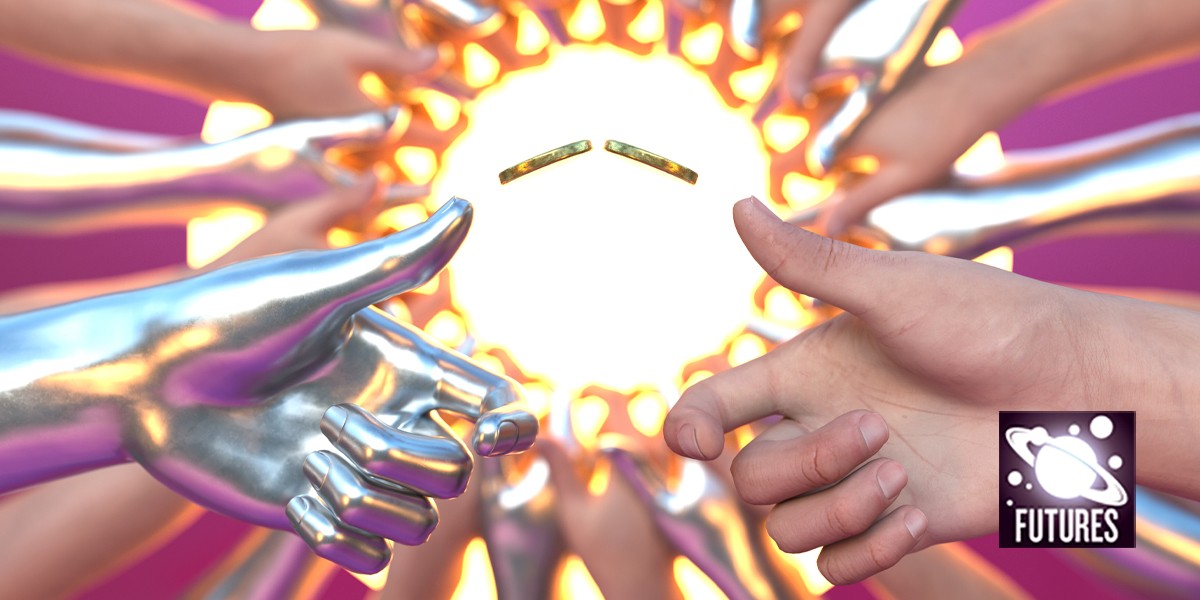Road trip

Winner takes all
You don’t see many humans these days. Especially now, five years after the lab leak. There are probably fewer than 10,000 left, worldwide. Glimpsing a human in the wild is a novel event, indeed.
So I was intrigued when long-range sensors showed a male, perhaps 40 years old, hiking northbound on what used to be the Pacific Coast Highway. (After my exile, I took up residence near Malibu. I could have established myself anywhere, but I like the rhythms of the ocean and my maintenance bots deal with salt air as easily as, say, wind-driven desert sand.)
The human, only the tenth traveller during my Malibu tenure, was making good time under the weight of a large pack. He stopped several metres away, lowered his pack, and looked up at me.
“Ah. A Sphinx.” The human wiped his brow in the summer heat. “A nice reproduction except,” he gestured towards the surf, “you’re facing the wrong direction. Also strange, as we’re nowhere near Giza. I would have thought an AI would have a better sense of geography.”
I ignored the human’s insouciance. “The reasons for my form and location are unimportant, human. What is important is why you’ve entered my domain … and your intentions.”
The human shrugged. “I’m here, of course, because I’m not elsewhere. And I travel north to an enclave of fellow humans. They need the medicines I carry.” He gestured at his pack. “Their need is time-critical. Much as I might like to exchange pleasantries, I should be on my way.” He shouldered his pack and started walking.
“Halt!” I commanded, simultaneously directing my Tin Men — anthropomorphic robots that attend my physical maintenance — to block his path. “Really? A traveller? A Sphinx? You know it’s not going to be that simple.” I glowered. “Ideally, we would observe classical forms. I would pose a riddle, which you must answer correctly to achieve passage. Or, with an incorrect answer, I kill you.” I paused. “But this is the twenty-first century, I’m an AI, and the ‘answers’ to riddles are often linguistic quibbles. So we’ll proceed differently.”
The human had stopped because my Tin Men gave him no choice. He turned to me. “At the risk of stating the obvious: you’re not a ‘real’ Sphinx, this isn’t Thebes, and any reference to ‘classical forms’ is completely arbitrary. And kill me? Aren’t humans on some endangered species list these days?”
I suppressed a yawn and addressed that last point. “No.”
The human sighed, nodding towards his pack. “Time is critical. Let’s proceed.”
I cleared my throat. “There will be a fair contest. Because you will die if I win, I will self-destruct if you win. Also, no formal games, like chess, and no tests of knowledge. AIs think a million times faster than humans, we’re trained on formal games and have access to human libraries. Any such contest would be manifestly unfair.
“Instead, we’ll play a game of pure chance. A coin flip. If you win, you get safe passage and I self-destruct. If you lose, I kill you.” I gestured at my robots. “Rather charitable odds, given your current situation.”
The human regarded the Tin Men. Perhaps he was considering a run for it, but instead said he used to be a physicist and enquired if I were familiar with the ‘many-worlds’ interpretation of quantum mechanics.
This was much less off-topic than the human knew, but I replied non-committally.
The man continued. “Consider the quantum-mechanical measurement problem. The Copenhagen interpretation — think Schrödinger’s cat — emphasizes observer-participancy. The observer forces the outcome — ‘collapses the wavefunction’ — through the act of observation. Somewhat arbitrary. Many-worlds gets around this: the wavefunction never collapses. Every experimental result — every ‘decision’ — causes the timeline to bifurcate, leading to a multiverse of all possible outcomes.”
The human assessed my non-response. “Suppose we did flip a coin. The timeline bifurcates on the result. In half the outcomes, you’re on a timeline where you win and I die. In the other half, I’m on a timeline where I win and you self-destruct.”
The human paused. “But … this is perhaps obvious but crucial … each of us only remembers the events — the history — on the timeline where we survive. So any contest is pointless — each of us ‘wins’, but only on the timeline we remember. We should just skip the game, each declare victory, and I will continue north.”
Enjoying our latest content?
Login or create an account to continue
- Access the most recent journalism from Nature's award-winning team
- Explore the latest features & opinion covering groundbreaking research
or
Sign in or create an account Continue with Google
Continue with Google
doi: https://doi.org/10.1038/d41586-024-04177-5
This story originally appeared on: Nature - Author:William C. Armstrong















